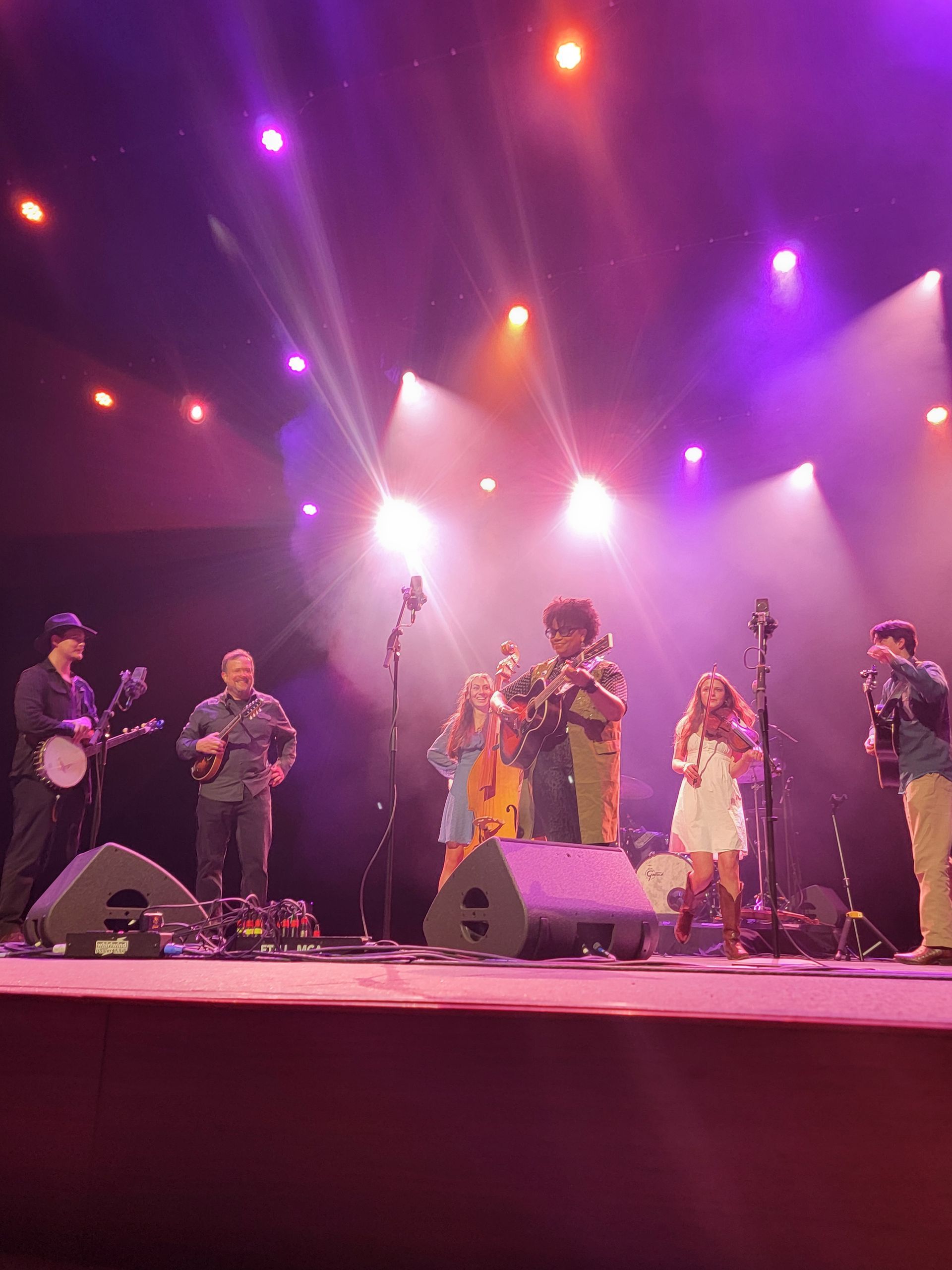Rhythms of Renewal: How Appalachia's Musicians Combat Cultural Stereotypes
In the lush landscapes of Appalachia, where the echoes of traditional folk blend with the rhythms of modernity, "The Express Way with Dulé Hill" finds its melody in the healing powers of music. Episode Two of this poignant PBS series delves deep into how Appalachia sings a tale of transformation and resilience, spotlighted through the lives of its vibrant artisans and musicians.
This episode introduces viewers to the remarkable endeavors of Doug Naselroad, a master luthier whose craftsmanship extends beyond creating stringed beauties. At his workshop in Appalachia, Doug pioneers an innovative rehabilitation program that aids opioid recovery through luthiery. This therapeutic approach harnesses the meticulous art of instrument making, providing a meditative and skill-building outlet for those entwined in the battle against addiction.
Naselroad later embarks on a journey with his students to help with a different kind of healing after the two forks of the aptly named Troublesome Creek flooded. The school sustained devastating damage as did the factory that was the livelihood of the town. Naselroad said getting the members of the school into cleanup mode was a way to keep their attention focused on something industrious so that the devastation would not get worse with relapses back into substance use. Asked by Dule Hill if flood recovery was reflective of what he does, Naselroad responds, “I just never get over the multiple layers of that. Damaged people clean up a damaged town in an economically damaged area.”
Naselroad later reflects on his mission stating he thanks the lord every day for putting him in that small Kentucky town to bring this unique brand of recovery to the world.
Amythyst Kiah
Amidst the backdrop of soaring mountains and deep valleys, the episode also tunes into the soul-stirring music of Black folk musician Amythyst Kiah, whose deep vocals and rhythmic guitar strumming resonate with the stories of the region. Her music—a fusion of Appalachian traditions and personal narrative—serves as a bridge connecting the past with the present, echoing the struggles and triumphs of her community.
Kiah found music as part of her journey through grief after her mother’s death. She talks candidly of growing up in a household with addiction and the toll living with it took on her mother’s mental health. Interspersed into the narrative is her song “wild turkey” chronicling her mother’s death.
She also talks of discovering the Old-Time Music program at East Tennessee State University. Kiah gained knowledge of the African ties to old time roots music and her soulful tone and a style that merges Prince and Porter Wagoner into an elevated style that befits a rock star. Her wardrobe was not the only difference in Kiah as she found that it was hard to break through the stereotype of a Black female Appalachian folk musician. She received a grammy nomination for her anthem “Black Myself” that allows acceptance for her chosen musical stylings and ownership of her music.
The segment focused on Kiah ends with her turning to alcohol and away from the joy and therapy of music. Kiah found therapy to deal with her grief and slowly fell back in love with the music that roots her Appalachian musical stylings with her cerebral and provoking lyrics.
Che Apalache
The narrative broadens with the introduction of the "Latin-grass" sound, an innovative musical genre that weaves together Latin-American folk and traditional bluegrass. This fusion, pioneered by musicians like Che Apalache, led by Joe Troop, symbolizes the evolving identity of Appalachia—a region often stereotyped, yet richly diverse. Their music not only entertains but also educates, serving as a cultural dialogue that challenges preconceptions and celebrates new dimensions of Appalachian identity.
"The Express Way with Dulé Hill" goes beyond mere entertainment, crafting a narrative that is both enriching and enlightening. It highlights the transformative power of the arts in Appalachian communities, highlighting how music and craftsmanship are not just forms of expression but also vital tools for community healing and social change.
Through the strings of Doug's guitars, the chords of Amythyst's melodies, and the harmonies of Che Apalache's performances, viewers experience a compelling story of hope and healing. Appalachia, with its complex tapestry of cultures and histories, is sung beautifully into the spotlight, revealing that its true essence lies in its ability to adapt, overcome, and resonate universally.
This episode of "The Express Way with Dulé Hill" is a testament to the power of art to transcend barriers, heal wounds, and unite diverse voices in a symphony of enduring strength and beauty.
Watch the The express Way with Dule Hills on PBS.org
The Appalachian Vibe




